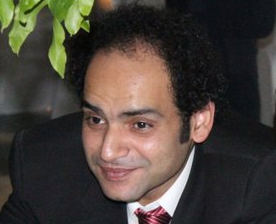By Mkhaimar Abusada
GAZA CITY: The Gaza Strip was known as a very traditional and conservative society long before Hamas seized control of it in June 2007. The densely-populated Strip is primarily inhabited by Palestinian refugees who have long suffered from poverty and negligence. But since Hamas took over the Gaza Strip, it has intensified its efforts and activities to Islamize the social life of local Palestinians. Islamization of the Gaza Strip refers to the efforts and process to impose Islamic laws and tradition by force.
The process of Islamization is being imposed by the Hamas government and its security apparatuses as well as volunteer da’wa groups who go from door to door asking people to adhere to Islamic laws and conservative dress (hijab). Beyond its imposition of Islamic social codes on daily life, Hamas controls the social, educational and religious systems that indoctrinate the residents with Islamic values that have a long-term effect on the nature of Gazan society.
The formal educational system in Gaza (with the exception of UNRWA schools) is completely controlled by Hamas. This was facilitated by the general teachers strike at the beginning of the 2008-2009 schooling year. Hamas was able to replace them with its own ideologue teachers. The educational system is undergoing a process of Islamization — in August 2009, the beginning of the school year, Hamas’ Ministry of Education imposed the hijab on school girls and transferred male teachers to boys schools.
The Islamization process is also facilitated by the tendencies of local residents, both male and female, to adjust themselves and conform with Hamas’ Islamic values. One of the most visible signs is the increasing number of bearded men, and women wearing hijab and veil in the streets of Gaza. Some of them grow beards for religious reasons, but women simply do not want to be harassed by Hamas “morality police” and da’wa groups. These da’wa groups are a civilian network of Hamas volunteers who belong to Islamic charitable societies, and deal with cultural, educational and religious matters.
The Hamas government stepped up the social Islamization process of Gaza in 2010. According to a statement released by the Palestinian Independent Commission for Human Rights in mid-September, these efforts included the repression of civil society and severe violations of personal freedom. For example, Hamas banned the smoking of nargilas (water pipes) by women in public places. Smoking and partying in a public place was the reason Hamas police closed the Beach Hotel in Gaza for three days in mid-September, as well as many other tourist places.
The summer of 2010 also witnessed a very stressful relationship between Hamas and UNRWA director John Ging. Extremists burned down UNRWA summer camps and leaflets by an extremist group accused UNRWA of teaching school girls fitness, dancing and immorality. The leaflets were distributed inside and within the surroundings of the Hamas-controlled mosques in Gaza. Even though Hamas condemned the attacks and pledged to track down the perpetrators, nothing about the investigation has been released.
Crazy Water Park, one of the Gaza Strip’s most popular entertainment sites, was closed down in mid-September by Hamas police for allowing mixed swimming. Two weeks later, the site was set on fire by a group of unknown gunmen. The Hamas government issued a strong condemnation and promised to pursue the perpetrators. Although it is not clear which Islamist group was behind it, Islamist militants allegedly supported by Hamas who objected to mixed-gender socializing are to be blamed.
A troubling development this last summer was the expanded role of Hamas’ “morality police”. The Hamas black-uniformed police began to patrol the beaches of Gaza to ensure that men and women are dressed “appropriately” and that unrelated men and women are not mingling. The morality police are monitoring public places, streets, and mixed universities for any suspicious and immoral behavior.
Hamas’ strategy is to Islamize the Gaza Strip step by step to avoid provoking neighboring Arab countries and the international community. Hamas has always denied accusations of turning Gaza into an Islamic emirate, but in a very recent interview with Reuters, top Hamas leader Mahmoud Al-Zahhar asked: “Is it a crime to Islamize the people? I am a Muslim living here according to our tradition. Why should I live under [western] tradition?” Al-Zahhar defended Hamas laws and efforts, but declined to say how far it would go with Islamization.
It is safe to say that Hamas’ ultimate goal is to Islamize the Gaza Strip gradually and present it as a successful model for moderate political Islam. But Hamas will have to take into consideration international and regional reactions to its Islamization efforts, and to avoid any provocation with its southern neighbor, Egypt.
Mkhaimar Abusada is a professor of political science at Al-Azhar university in Gaza. This commentary is published by Daily News Egypt in collaboration with bitterlemons-international.org.


